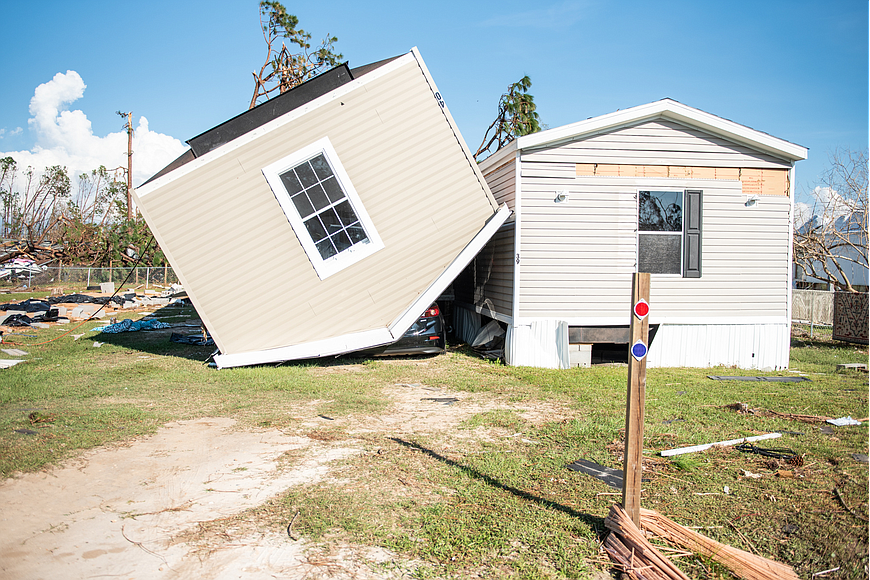With Hurricane Ian heading directly for the Gulf Coast, business owners are being urged to prepare for both catastrophic damage and to maintain continuity in the days, or possibly weeks, after the storm has moved on.
The storm, which at 5 p.m. Monday had sustained winds of 100 mph, is still a couple of days away but was already disrupting life across the region early in the week. Walmart was filled with shoppers on what is usually a slow day, long lines of cars waited for gas pumps at a Wawa on Gandy Boulevard and one Tampa Shell station was left without fuel as cars pulled into the parking lot only to drive off empty.
Read more: Flight cancellations, airport updates from Hurricane Ian at TPA, PIE, SRQ, RSW, PGD
“It’s been real quiet,” says the woman behind the counter at the gas station, probably the only cashier within 150 miles to utter that statement in the past five days.
But as the frenzied last-minute preparations were underway, businesses across the region were also getting ready for the worst as they were forced to close, work without employees and prepare their properties. This is as they fretted about the uncertainty of when they’d be able to get back to work.
Being prepared for a storm of Ian’s magnitude is more than just securing a shop and boarding up windows, though. A business owner needs to have a continuity plan in place, secure important documents and make sure insurance documents are handy.
Here are some tips from Bill Cronin, the president and CEO of the Pasco Economic Development Council:
Employees:
- Know where your employees are and the best way to contact them.
- Establish a mass notification system to notify and get in touch with employees quickly and easily.
Assets:
- Know where your assets are, such as equipment, supplies, products, networks and data.
- Cover your assets and raise them above the floor if possible.
- Identify how you will protect important business documents and inventory that is vulnerable to water damage.
Prevent damage:
- Know the address of all buildings, including storage facilities.
- Have an evacuation plan for each facility.
- Use sandbags to prevent flooding at all entrances.
- Know the potential for damage at each facility and which ones are at higher risk for damage.
Emergency plan:
- Have a plan that will enable operation with various employees at different locations.
Data:
- Back up your data offsite and consider using Cloud based systems. This should include payroll, CRM and HR systems.
Emergency response team:
- Define each team members roles and responsibilities and meet with employees to discuss their roles and answer questions that they may have.
Keep employees and customers aware:
- Use social media.
- Update your website.
- Call employees as needed with updates.







